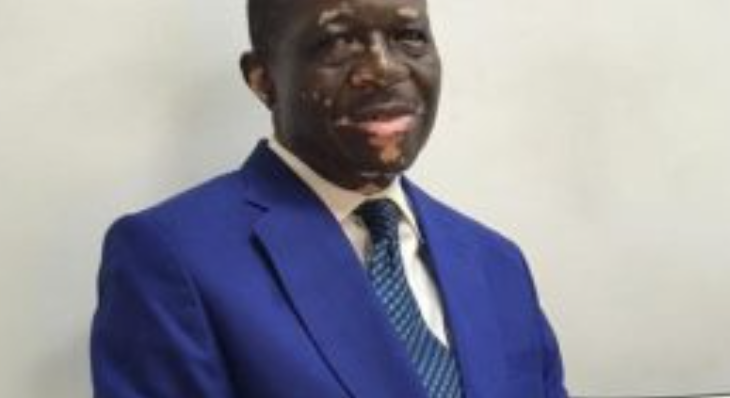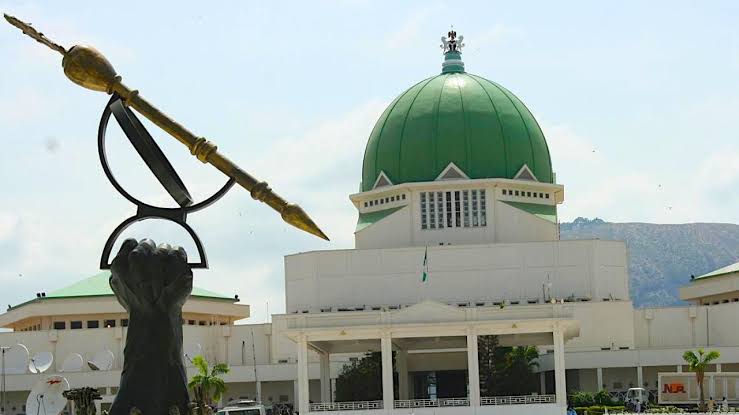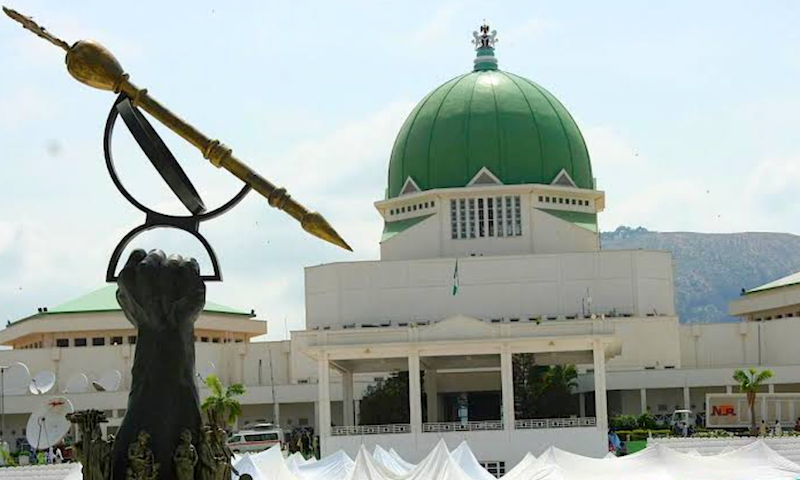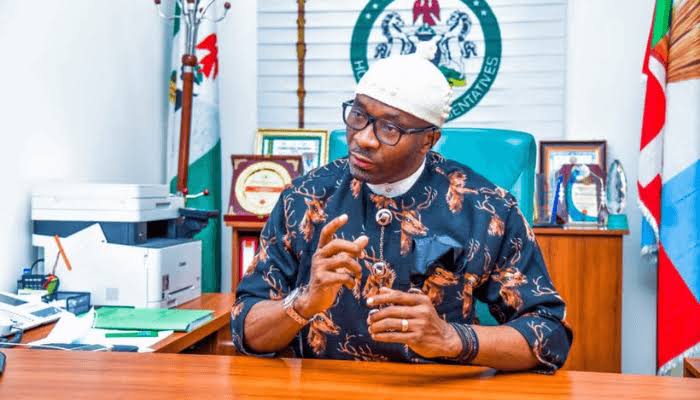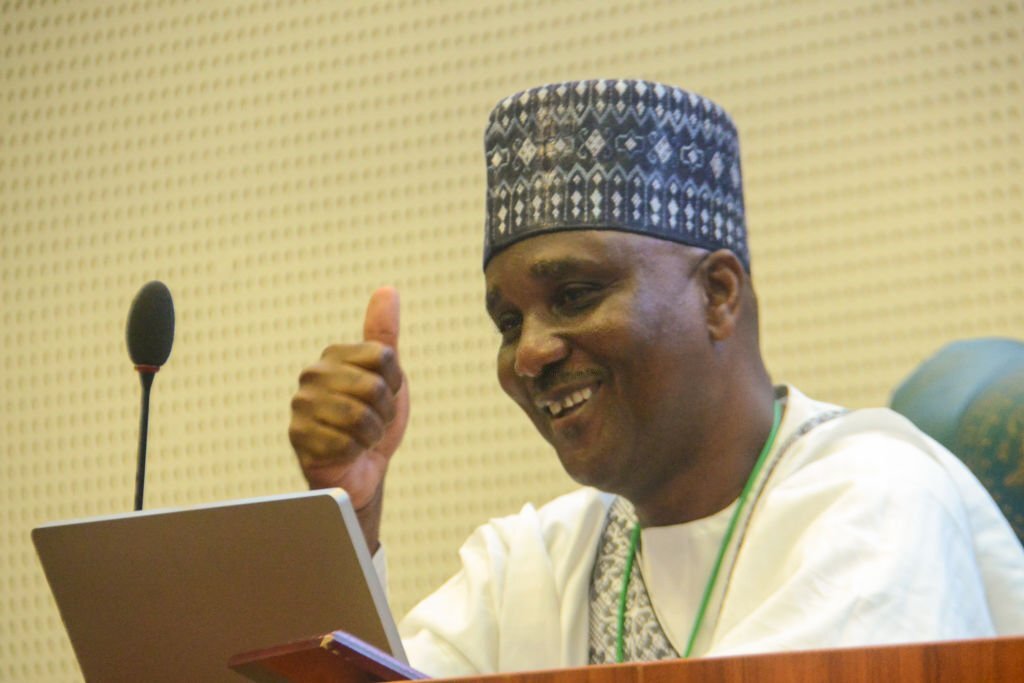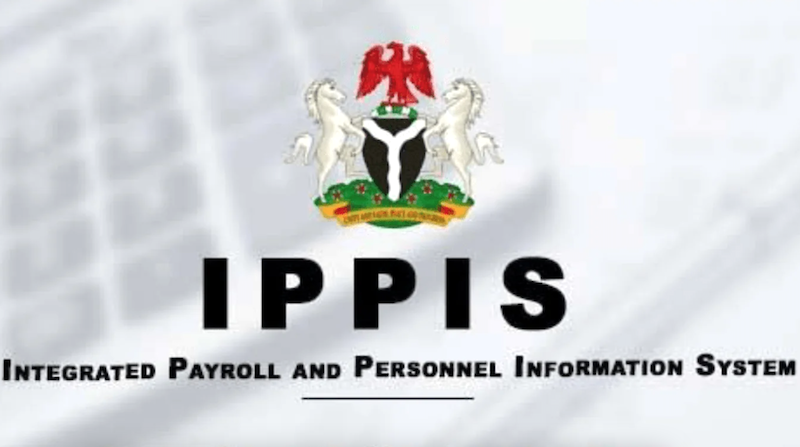Amidst economic challenges; which are strangulating Nigerians’ lives, the National Assembly – a bunch of representatives elected by Nigerians to represent their interests, have done something very bizarre in the Federal Budget signed into law by President Bola Tinubu two days ago [January 1, 2024], by increasing their own budget with about N200 billion.
The National Assembly, made up of the Upper chamber [Senate] with 109 Senators, and Lower chamber [House of Representative] made up of 360 members, raised their allocation from N197 billion to N344 billion – highest ever in the history of the National Assembly.
This means that in spite of all economic challenges, the federal lawmakers have raised their own allocation in the 2024 budget, to an unprecedented N344.48 billion – an increase of over 50 per cent on the N197 billion proposed by President Bola Tinubu for them in the budget proposal submitted to them in November 30, 2023.
Both the Senate and the House of Representatives passed the federal budget on Saturday after increasing it from N27.5 trillion proposed by the president to N28.7 trillion, a difference of about N1.2 trillion.
The increase in the allocation of the National Assembly is coming at a time Nigerians are being asked to endure pains due to the economic reforms embarked upon by the Tinubu administration.
This shall not be the first time our political leaders – both at the Executive and the Legislative levels, are duping and cheating Nigerians. It has been long coming, except that this time around; under President Bola Ahmed Tinubu, it has become so astronomical that not too many Nigerians might survive the burden.
And since this narration is strictly on the National Assembly, permit me to proceed with the lawmakers continued trend of arbitrary increment of their budgets irrespective of the economic situation facing the country.
Between 2011 and 2014, the National Assembly had a fixed budget of N150 billion, but it was slashed in 2015 to N130 billion due to the crash in the price of oil.
Under former President Muhammadu Buhari, who was in power between 2015 and 2023, the budget was further reduced to N125 billion, but was increased to N128 billion in 2021, N134 billion in 2022 and N228 billion in 2023.
Many believe that the “stagnant budget” in the 8th Assembly (2015-2019) was due to the strained relationship between the leadership of the National Assembly and President Muhammadu Buhari.
The “rosy” and “robust” relationship between the Executive and Legislature returned, and the former president proposed a budget of N169 billion for the National Assembly in 2023, but the lawmakers increased it to N228 billion.
One of the reasons given by the lawmakers was that “certain projects were not catered for in the initial budget.” In addition, the lawmakers allocated N30 billion for payment of severance allowance of their aides and ex-lawmakers.
President Tinubu proposed N197 billion as budget estimate for the National Assembly in the 2024 budget thus reducing the 2023 budget by about N30 billion. However, the lawmakers upped their proposal to a record N344.5 billion, an increase of about N147 billion.
There is need for you to see the breakdown of the National Assembly’s budget, and here it is under.
National Assembly Office – N36.7 billion Senate – N49.1 billion
House of Representatives – N78.6 billion
National Assembly Service Commission – 12.3 billion
Legislative Aides – N20.3 billion
NILDS to get N9.09 billion
Service-wide votes – N15.1 billion
Senate Appropriation Committee – N200 million
House Appropriation Committee – N200 million
Public Account committees of Senate and House – N280.7 million
NASS Library Take Off Grant – N12.1 billion
National Assembly building (ongoing) – N4.2 billion
NASS Liabilities – N8.5 billion
NASS E-Library – N225 million
Constitution Review – N1 billion
Completion of NILDS HQ – N4.5 billion Construction of NASC Building – N10 billion
Office of Clerks and Permanent Secretaries – N1.2 billion
Alternative Power System – N4 billion
NASS Zonal Offices – N3 billion
Senate Car Park – N3 billion
Reps Car Park -N3 billion
Furnishing of committee rooms (Senate) -N2.7 billion
Furnishing of committee rooms (House) – N3 billion
Design, Construction, Furnishing and Equipping of NASS Ultramodern Printing Press – N3 billion
Design, Construction, Furnishing and Equipping of the National Assembly Budget & Research Office (NABRO) – N4 billion
NASS Hospital Project – N15 billion
NASS Recreation Centre – N4 billion
Procurement of Books for the NASS Library – N3 billion
NASS Pension Board (Take-Off Grant) – N2.5 billion.
Please, take note of the fact that the National Assembly’s allocated budget in this year – 2024, is higher than the allocation given to all educational institutions in Nigeria.
Many Nigerians believe that President Tinubu may not have the moral leverage to caution the lawmakers because the presidency has not been prudent in its own spendings.
We should not be in hurry to forget that earlier into the life of this 10th National Assembly, one of the first decisions the Legislators took was that of buying luxurious SUV vehicles – Landcruiser and Prado, for themselves.
In that suicide decision, that mocked all senses of normalcy and morality, the legislators appropriated and approved the purchase of Landcruiser cars to each member of the 109 Senators at the cost of 164 million Naira each – translating to total of Seventeen Billion, Eight Hundred and Six Million Naira [N17,876,000,000]. That was for the Senators alone.
In the other hand, the 360 members of the Federal House of Representative got a Prado each, at the cost of 140 million Naira – translating to Fifty Billion, Four Hundred Million Naira [N50,400,000,000]. This was for the “Honourable” [or are they dis-Honourables?] members only.
The Nigerian law makers – Nigerians should be forgiven if they call these dangerous dealers parading themselves as leaders as law breakers, resisted huge outcries of those that elected them, went ahead to purchase the SUVs. The fund for the purchase of the luxurious cars was from the loan of Eight Hundred Million American Dollars sourced from the World Bank by President Bola Tinubu’s Government.
Nigerians slept on their rights as they lacked mobility in leadership to occupy the National Assembly because if they had done that, the dishonourable and extinguishable lawmakers probably would have a change of mind about the inglorious act – probably though.
Even more on this luxurious lifestyle of the law makers was their refusal to patronise Nigerian car manufacturers, like Innoson Vehicle Manufacturing and others. They instead, transported this huge money, in foreign exchange, across the Atlantic Ocean to Japan in preference of Toyota products.
Nigerians cried. President Bola Tinubu slept off in the Villa while Nigerians were shouting, wailing and weeping about this transaction. There was no organized labour – not the Trade Union Congress nor the Nigerian Labour Congress, could lead Nigerians to occupy the National Assembly against the looters. And the “thieves” absconded with their loots.
Just the way the Nigerian political leadership cookie crumbles!
Contact:
Website: www.godwintheguru.com
YouTube Cannel: Godwin The Guru
Twitter: @godwin_buebu
Facebook: Godwin Etakibuebu
Facebook Page: Veteran Column
Telegram: @friendsoftheguru
Phone: +234-906-887-0014 – short messages only
You can also listen to this author [Godwin Etakibuebu] every Monday; from 0930 – 1100 hours @ Lagos Talks 91.3 FM live, in a weekly review of topical issues, presented by The News Guru [TNG].
